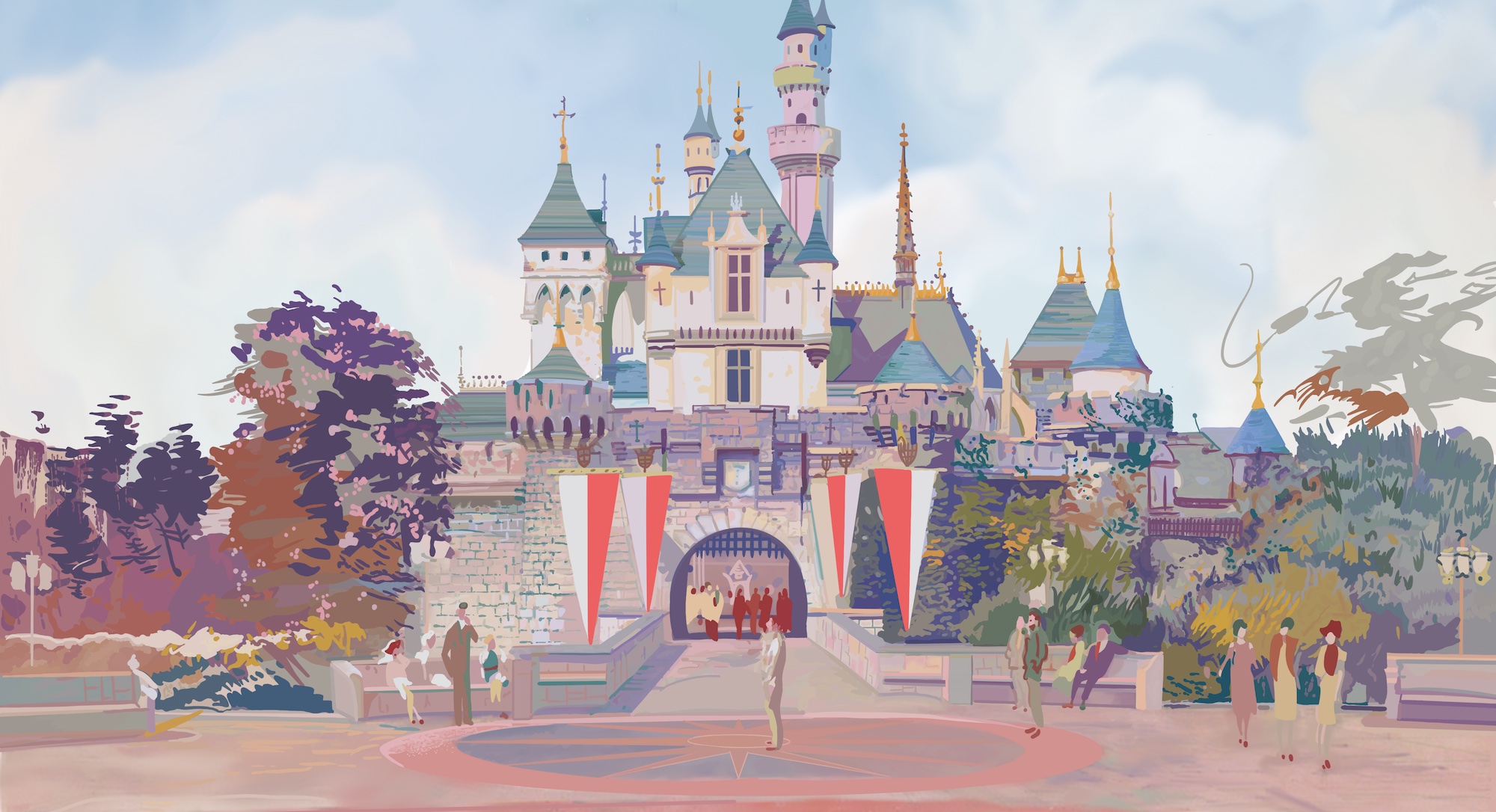Universal’s Comcast-Powered Decade (2013 – 2023)
Like Disney, the story of Universal’s Orlando footprint can’t be complete without looking at the wider happenings of the company who owns it.
1. The Midas Comcast Touch

Unlike The Walt Disney Company – which has been an independent business since its founding in 1923 – Universal Studios has had quite a few corporate overlords, having been bought, sold, and traded more often than a baseball card. After a brief, odd stint owned by French media company Vivendi, a majority share in Universal was purchased in 2004 by General Electric – the conglomerate that had long owned one of the three big television broadcasters, NBC. GE united their two media-focused subsidiaries into “NBCUniversal” before, in 2009, selling 51% of “NBCU” to telecommunications giant Comcast.
Known industry-wide for its cable television service, phone service, and poor customer service, industry insiders expected that Comcast would quickly strip NBCUniversal for parts, separating out the cable channels and music licensing core to its business and selling off the rest to private equity groups. After all, why would a telecommunications company want to own and operate Universal-branded theme parks?
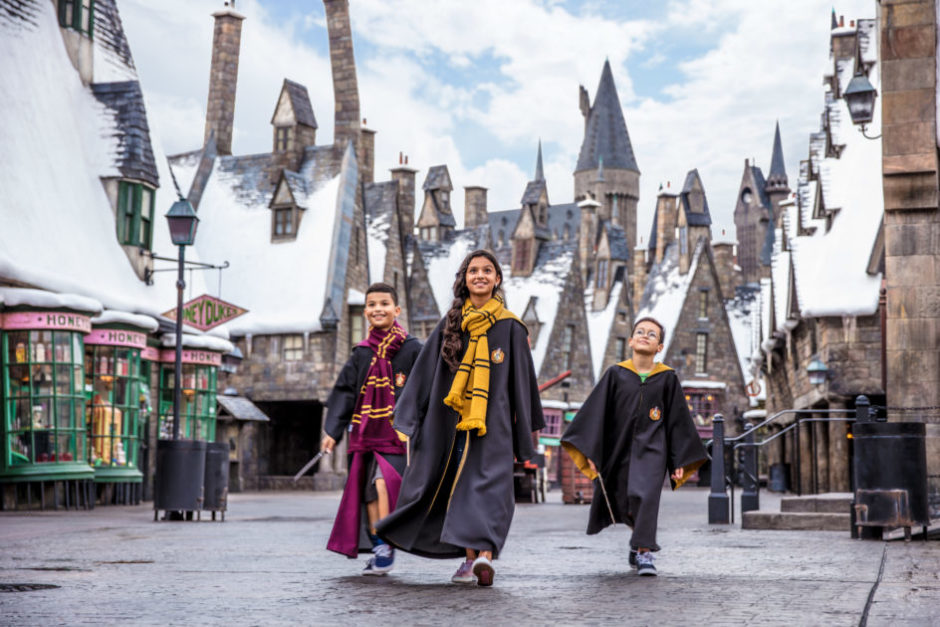
Of course, it just so happens that Comcast picked up a controlling share in Universal just as the Wizarding World of Harry Potter opened. Almost certainly as a result, Comcast pulled off one of the biggest twists in modern entertainment history: rather than selling off NBCUniversal’s theme parks, Comcast held on to them… and seemingly fell in love.
In 2013, Comcast bought out GE’s remaining 49% stake in NBCUniversal for $16.7 billion, turning the cable titan into a media giant and theme park Goliath, too.
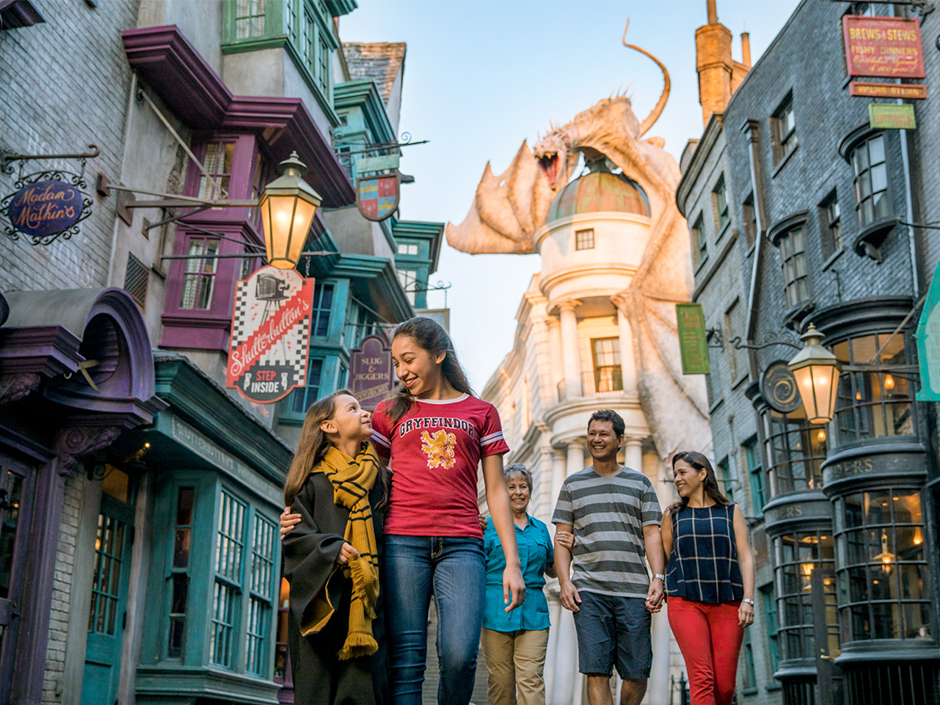
So when I wrote “Universal Rises” in summer 2013, we only knew that Comcast CEO Brian Roberts was promising to “double down on theme parks.” At a conference with industry analysts that fall, he offered, “We think that there is a lot of ‘there’ there in the theme-park business for many years to come and that we have a low market share – and only one way to go.” If Hogsmeade hadn’t already proven it, then the 2014 opening of its sister, Diagon Alley, certainly did.
In the same breath, he noted that while Universal had over 4,200 hotel rooms in Orlando at the time, internal evaluation suggested the resort could support as many as 15,000. (Since then, the additions of Cabana Bay, the Aventura, and Endless Summer Resorts have more than doubled the resort’s hotel capacity to 9,000 rooms; far afield of Disney’s 36,000, but nothing to sneeze at.)
2. Recognizing parks’ potential
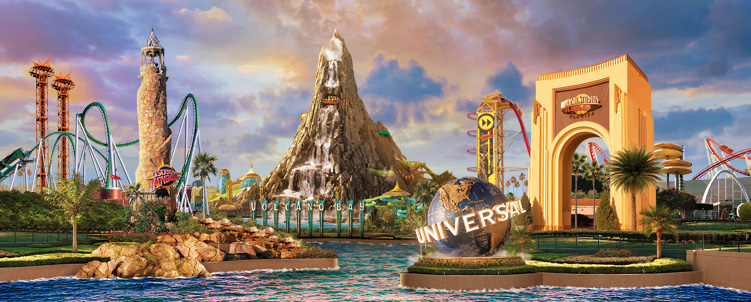
That additional hotel inventory has been needed since Universal has been as bullish in the theme parks as they have been around. Since 2013, Universal Orlando has added substantial new attractions and expansions, including The Wizarding World of Harry Potter – Diagon Alley, Springfield: Home of the Simpsons, Skull Island: Reign of Kong, Race Through New York, Fast & Furious: Supercharged, Hagrid’s Magical Creatures Motorbike Adventure, Jurassic World VelociCoaster, and Minion Ave. to say nothing of the brand-new, from-scratch Volcano Bay Water Park (complete with an original, IP-free backstory, characters, settings, and more).
Comcast seems to have so much faith in their theme park division that in 2023, it got a major corporate upgrade. Universal Parks and Resorts was transformed into Universal Destinations and Experiences – a statement of Universal’s growing ambition (including its new family park in Texas and a standalone, year-round Halloween complex in Las Vegas). So even if there are certainly areas where Universal Orlando’s existing parks could use some refreshing, there’s no question that Comcast is as ambitious an owner as they are an unlikely one.
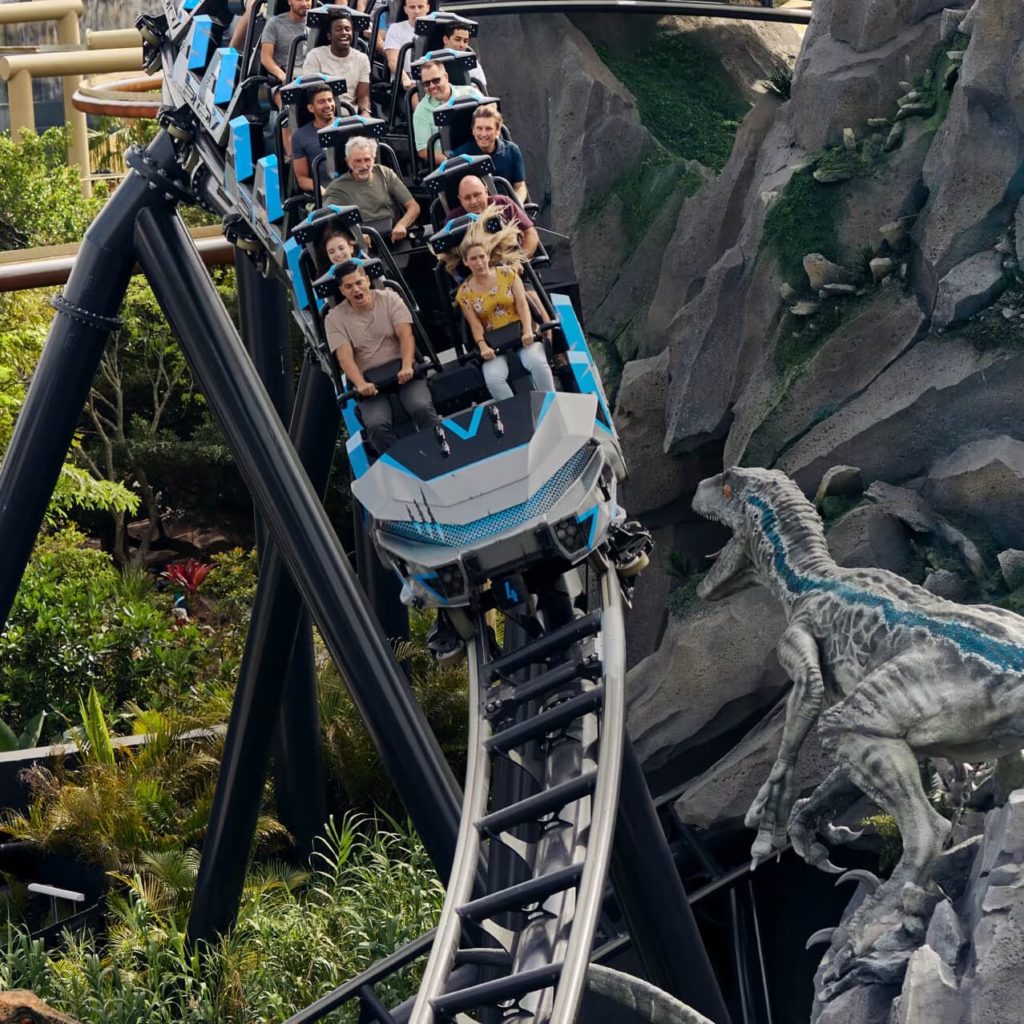
….Which also turns out to have been very lucky for Universal Parks. While Disney’s core businesses (theme parks and theatrical films) were essentially grounded by COVID-19, Comcast‘s core business (Internet and cable) served as a sturdy foundation, underwriting the theme parks and allowing them to recoup quickly. (Construction on Disney’s TRON Lightcycle Run began just weeks after Universal’s VelociCoaster, but a lengthy pandemic pause and slow re-start saw the TRON ride open two years after VelociCoaster did.)
3. An epic opportunity
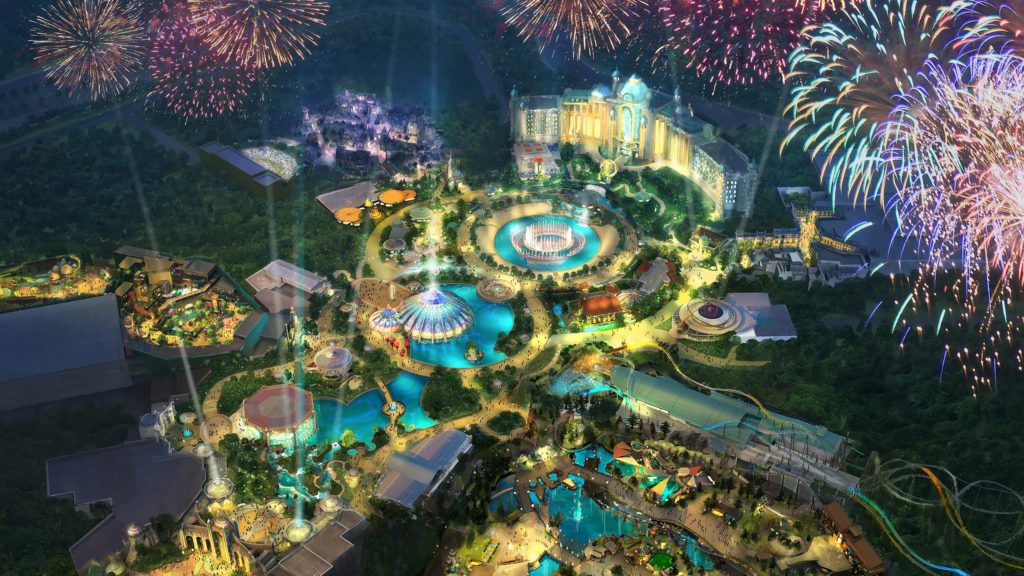
Of course, there’s no question that all conversation about the Orlando theme park wars rests on a very large variable that – even in 2013 – few would’ve imaged was possible. But it’s true: well underway is the construction of Universal’s Epic Universe, a third main gate for the resort (and the first U.S. theme park by either Disney or Universal since Disney California Adventure in 2001).
We have gone deep on Epic Universe in articles across the site, but the most essential read is probably our “Universal Alignment” Special Feature, exploring Universal’s strategy and ambitions for this new park. Of course, we also spent time in that story trying to understand why – despite the imminent arrival of a new theme park filled with Mario, Monsters, cosmic coasters, Dragons, and still more Potter – Disney just doesn’t seem too worried.

At least as far as we can tell, the Mouse doesn’t have a retaliatory plan ready, meaning that if Universal Epic Universe turns out to be a smash hit that finally makes Universal Orlando a must-visit, multi-day experience tearing tourists away from Disney World, Disney will be years from having any real response. Whether Disney’s lack of alarm turns out to be brilliant foresight or a major miscalculation, we have yet to see…
Universal Rises… again?
Ten years ago, in “Universal Rises,” I made the observation that by all accounts, the momentum in Orlando seemed to be gathering not behind Disney, but behind its biggest competitor.
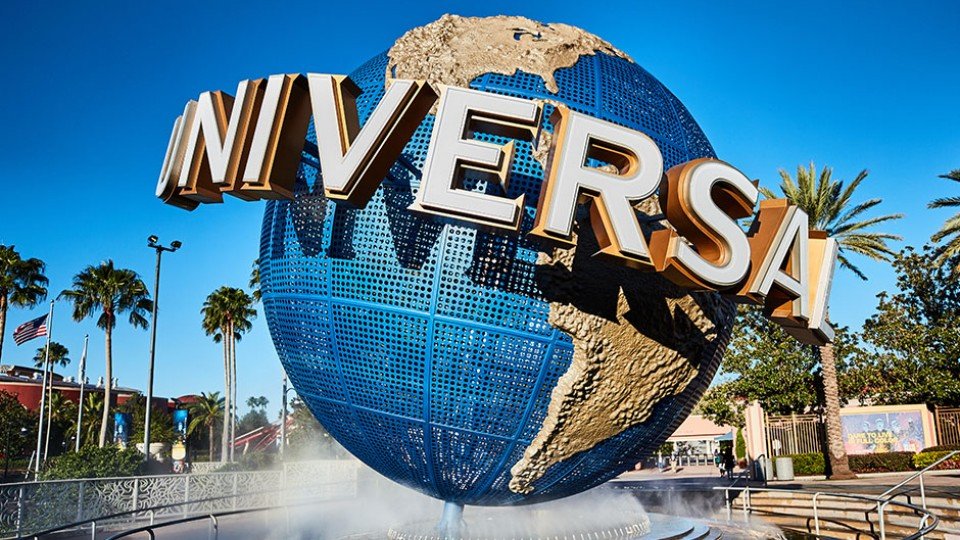
Make no mistake: there are areas in which Universal can never beat Disney, full stop. And as much bravado as Universal fans are feeling right now, it’s almost certainly true that theme parks are one of them. For a whole lot of reasons, Disney World is cemented in pop culture in a way that Universal Orlando can probably never match. (That said, AECOM’s 2022 estimates suggest that Universal’s Islands of Adventure surpassed EPCOT, Hollywood Studios, and Animal Kingdom in attendance last year…)
But even if Disney World will always occupy an echelon of pop culture and tourism all its own, there’s still the question of where that momentum is centered. Will Epic Universe really shift the gravity in Orlando? Will tourists finally give Universal a chance as the multi-day, multi-park resort it is rather than just a day trip and pass-through to Potter? And if they do, will they like what they see enough to come back?
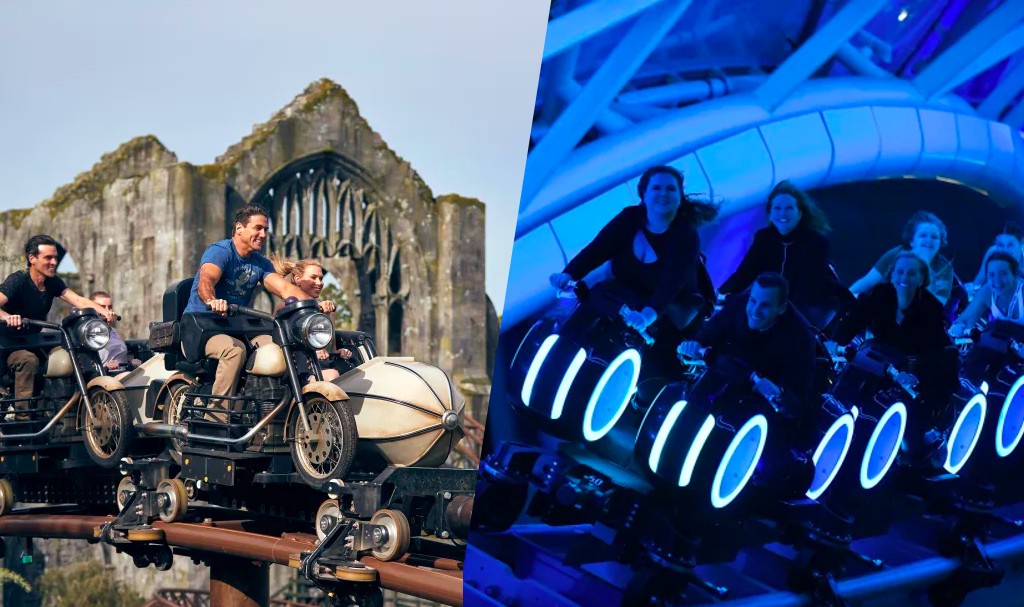
And even ignoring Universal’s newest park for now, think of the trajectory both Disney and Universal have been on (with both greenlighting massive expansions and E-Tickets over the last decade), passed through the lens of their corporate overlords (one bullish, one bearish), and try to see a decade into the future… What will Disney and Universal’s Orlando resorts look like? What do you hope and fear for each property?
When we left off our “Universal Rises” series in 2013, we could only imagine what the future might hold… and frankly, almost nothing that’s happened would’ve been on our BINGO card, so imagining where Walt Disney World and Universal Orlando may be in 2033 sounds like an impossible task.
Still, we’ve got to ask – How might the trajectories of Disney and Comcast trickle down to their theme parks? What do you hope will happen at Walt Disney World and Universal Orlando in the next decade, and what do you think really will? Will Mario finally give Universal its very own Mickey Mouse? And when we return to this series ten years from now, will we agree that the tide is changing in Orlando? We’ll just have to wait and find out together…
